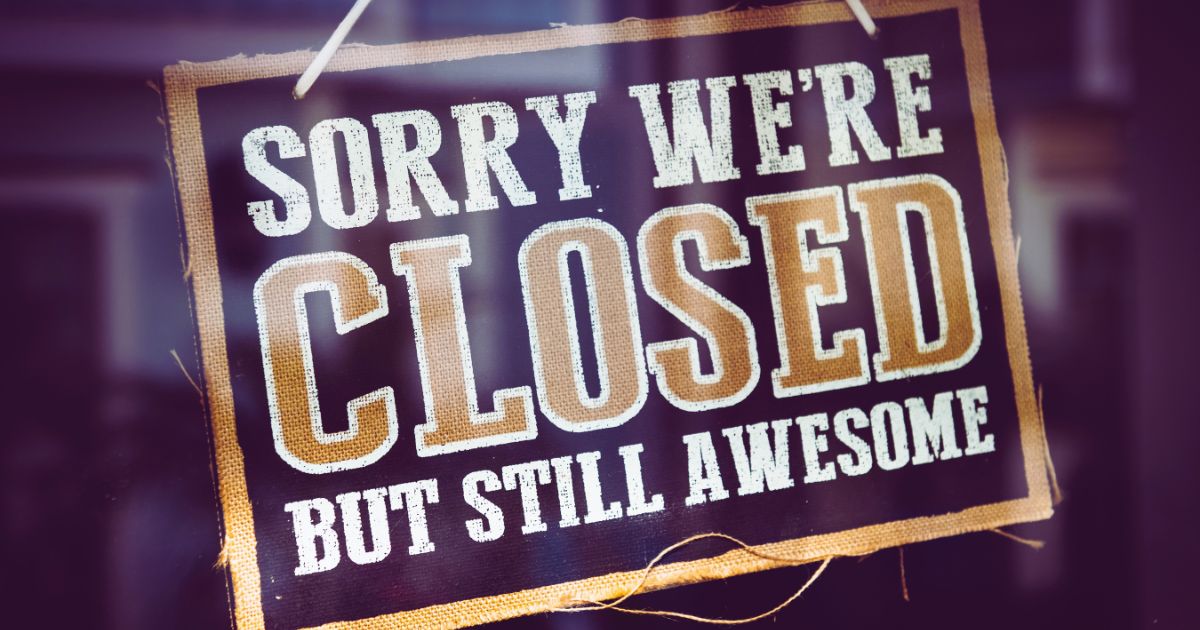
Business continuity is exactly what it sounds like; the continuity of business. Suppose expected or unexpected events such as natural disasters or forced shutdowns occur. In that case, the business should be resilient enough to be able to recover quickly after a short period of disruption. With the holidays fast approaching, it is good to have a plan in place for your annual business shutdown.
The annual business shutdown is the time of year when your business closes its doors. It usually happens in response to many other companies closing during the month of December when employees or clients are taking annual leave.
NOTE: Consider the industry in which you operate. It might be a good idea to keep your doors open during this period, especially if you are working in the hospitality and leisure industries.
If you are shutting down lights and locking the office doors before heading out for your well-deserved rest, here’s what you should know about business continuity.
Understand the Process and Have a Business Continuity Strategy in Place
Business continuity is process-driven. It aims to keep operations running smoothly in spite of disruptions. This can be anything from your annual shutdown to more severe, unplanned events like a cyber attack, power supply issues or even protests. Your plan or strategy needs to include what is expected of workers during this period, what needs to happen with assets and how all of this will occur.
A well-constructed plan will lower the impact that these events will have on your business. Whether financial or reputational, here are the ways the negative impact is reduced:
Financial: Downtime can affect your bottom line if sales cannot be completed, distribution and service delivery is unable to function, or raw materials and resources are preventing production from continuing.
Regulatory: Where businesses fail to respond timely to certain events, there can be some legal or compliance implications.
Reputational: A business’s reputation is affected if it is unable to deliver on its promises. This can be with deliveries, processing orders, prompt customer service or supply issues.
Key Steps in Your Business Continuity Strategy
Your step-by-step business continuity plan needs to focus on the following:
1. Identify Critical Business Areas and Functions
By identifying these key areas, your business can see where the most important resources should be focused during an event that impacts normal operations. During this assessment, you need to outline what the acceptable downtime will be that will prevent you from falling behind or losing business. This needs to be documented and shared clearly with the rest of the team.
2. Identify Threats and Potential Impacts
Once you know what the critical areas of operation are, you need to see what can potentially prevent it from operating. During the festive season, this includes a large number of employees wanting to take leave, as well as other businesses shutting down. If deliveries, for instance, won’t be picked up or delivered over Christmas and New Year’s Day, then it might be worth deciding to close orders altogether for this period to avoid any upset customers. Other risks like cyber threats or adverse weather conditions can also be threats during your business shutdown.
3. Put Measures in Place
To help your business with closing for the holiday while ensuring everything runs smoothly, you must put measures in place that will protect your business operation. As you will have no staff during the holidays, part of your planning needs to be security for the facility and ensuring everything is safely switched off and locked up. Improving your cyber security at this time is also a good idea. You can clearly communicate your closing and re-opening dates via social media and your website to ensure everyone is aware.
4. Ensure Data is Safely Stored
As crime is rampant during the festive season, ensure that you have data stored in a secure offsite facility with backups of all your recent documentation. Should your computers be stolen, accounts hacked or equipment and offline files destroyed, you will need to be prepared to recover from this too.
5. Speak with Key Vendors and Suppliers
As your business will be closed during the festive season, plan for any deliveries that might arrive from suppliers. You can either arrange for a person to receive it, or schedule another delivery with the vendor. Similarly, banks will be closed over public holidays, meaning that some transactions will only be processed much later. For this reason, make the necessary arrangements to pay suppliers early or communicate that payments may be delayed.
Armed with a good business continuity plan, you can ensure that you have well-rested staff that return to a fully functioning operation after the festive season. Now you can rest assured that your annual shutdown will go down without a hitch.












